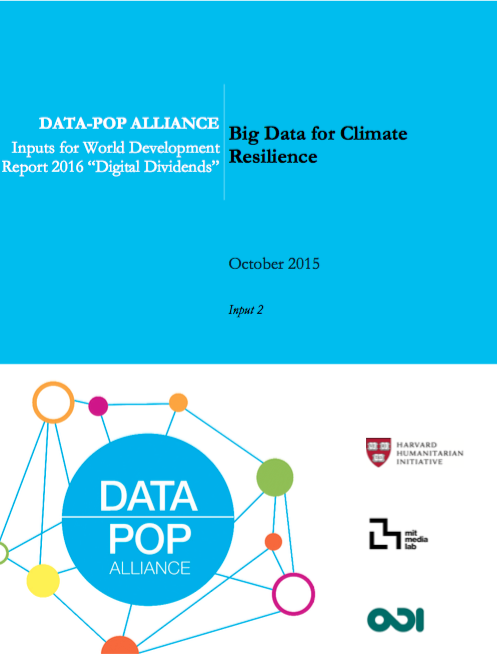This Empirical Paper was written by Emmanuel Letouzé (co-lead and corresponding author), Patrick Vinck (co-lead author), Bessie Schwarz, Simone Sala, David Sangokoya (co-lead author), and Elizabeth Tellman. It benefited from advice from Marc Levy as well as inputs and editing support from Lauren Barrett, Carson Martinez, and Natalie Shoup.
Funding for this paper was provided by the World Bank Group whose support is gratefully acknowledged, as well as the Rockefeller Foundation as part of their core support to Data-Pop Alliance’s activities. Data-Pop Alliance developed this paper as one of three inputs for the World Bank’s 2016 World Development Report: “Digital Dividends”.
Data-Pop Alliance has been conducting ongoing research on Big Data, climate change and environmental resilience. Our co-Director Patrick Vinck serves as lead author with contributions from several members of CIESIN, as well as our Research Affiliates Simone Sala, Bessie Schwarz and Beth Tellman. The paper outlines the Data–Pop Alliance’s ongoing research on Big Data, climate change, and environmental resilience. Authors dive deeply into the conceptualization of climate change resilience, both specific and general; addresses Big Data contributions to understanding the components of climate risk; and identifies gaps and challenges to Big Data applications to climate resilience decision-making. Finally, suggestions are made for individual and community engagement in building resilience.

